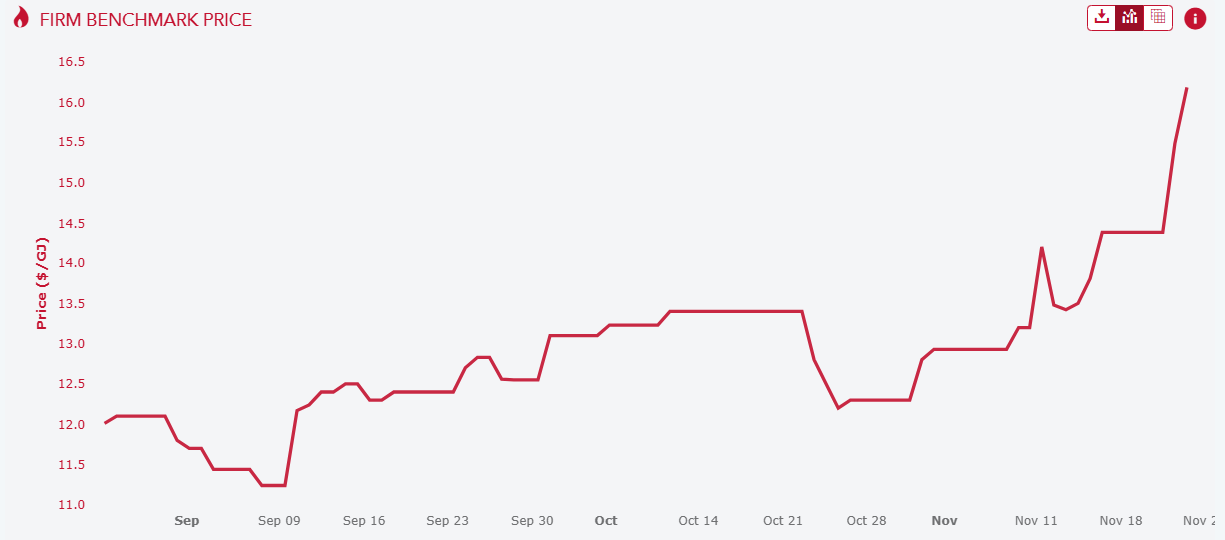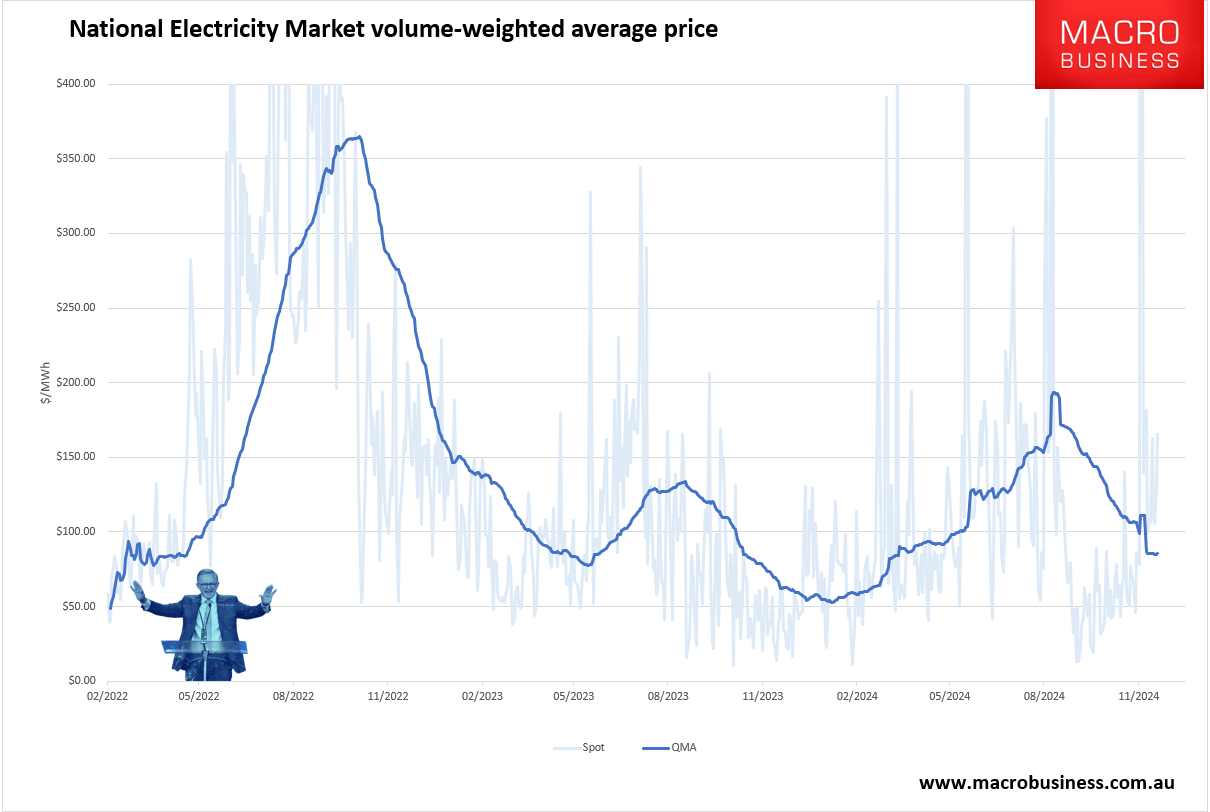The gas cartel is bleeding out the Aussie economy. The price of energy has shifted interest rates to a level that the underlying Australian mortgage structure cannot cope with.
As such, since the Ukraine War, the Australian private sector economy has been in a permanent recession.
This might be OK if we were substituting unproductive housing and consumption with a capital-deepening export sector.
But we are not.
The East Coast gas cartel is a foreign-owned, China-beholden, radically undertaxed, tiny-employing, industry-destroying economic parasite.
It makes Australia considerably poorer, not richer, while boosting our existential enemy in China and rendering us much more vulnerable to its industrial supply chains.
The East Coast gas cartel has also increasingly destabilised both fiscal and monetary policy as authorities try to deal with recurrent energy shocks.
Another shock is underway now. The gas price is far above where it should be in shoulder season because the export cartel brings scarcity prices back to Australia from any and every shortage in the world.
We should be at one-quarter of this price today, but a European cold snap has driven it crazy.

Power prices are bottoming out 60% above last year’s lows.

More bill shocks are coming H2, 25 as the AER passes this shock onto households.
So far, fiscal giveaways have protected most people from the worst bill shocks (though not rate hikes). But how long can that go on? Every energy rebate is a subsidy for gas cartel gouging, and it grows bolder every year.
Not to mention the iron ore ice age, which has only just started, will severely tax the budget in the years ahead. Energy rebates will become much more controversial as spending is constrained.
The cartel has also derailed the energy transition, rendering gas nearly impossible as a firming fuel. As a result, we are now subsidising coal to end coal. It’s preposterous.
The notion that we are a renewable energy superpower is a joke. We are the energy superdidiot. We’ve allowed a cartel to steal and ruin incredible natural advantages in energy.
This has all happened in the last ten years. Yet nobody talks about it, except me. Even at MB, few people read the energy posts. Google never links them.
The main reason for the blanket silence is the final hammer blow to Australia. The East Coast gas cartel has corrupted Canberra policy.
The cartel uses threats, bribes, and personal influence to protect itself, even though it has its hand in the pockets of every other business and household in the economy.
Nobody is taking it on. Only The Greens have a plan to do so, and only obliquely anyway.
Labor is the cartel’s patsy. Its resources minister is deeply corrupt. Its treasurer is a professional coward. Its industry minister is a complete phony. Its PM is a nest-feathering backroom bovver boy who would rather crawl to China.
The Coalition might be even worse. Its fossil fuel dills are a natural ally to the cartel. Its simplistic conceptualisation of public versus private means it only contemplates supply-side fixes that won’t work because the problem is failed competition.
And its leader flies around on Gina’s jumbo, the local billionaire most closely attached to the cartel. To wit.
Senex Energy’s $1bn Atlas project, one Australia’s first large-scale gas developments to come online in years, will deliver its first supplies to the market within a week – as joint owner Gina Rinehart said the project’s delays were indicative of Labor’s attempt to kill Australia’s resource sector.
Additional gas to Australia’s east coast market is a major boost to the energy sector and the broader economy amid a looming supply crunch.
Except for this.
Mr Davies indicated that the Senex investment would directly reinforce Queensland’s reliability as a shipper of energy to Japan, South Korea and China by relieving pressure on exporters including the Santos/Petronas Gladstone Liquified National Gas (GLNG) joint-venture.
“Through our supply arrangements with GLNG, we are providing energy security and economic security for our trading partners, displacing coal-fired generation,” he said.
Australia will not receive extra cheap gas. The cartel will manage its portfolio of assets and export options to ensure it.
The media is a card-carrying idiot that doesn’t cover anything that a politician hasn’t mentioned first, so there is no discussion. And when it arises, it is always framed uselessly as renewables versus coal. Or climate change versus gas.
Hilariously, the media is the worst-hit sector by the cartel’s attack on the economy because it is dependent upon advertising and housing, the two most interest-rate-sensitive sectors.
Yet it has neither the brains nor the will to tackle its existential economic enemy, even though it is in the national interest. I can’t remember the last time one of its major commentators even mentioned gas.
Mark my words. No developed economy can prosper without cheap energy. Let alone one that has used a cheap credit, publicly supported, housing bubble to offset the destruction of its industrial base by globalisation.
Either the gas cartel is broken by domestic reservation or export levies, or the Aussie economy will bleed out over the next twenty years.

